Prenatal Screening
There are many myths around pregnancy.
Physiotherapists who specialize in pre/post natal care can help debunk these myths, playing an important role in the management of physical changes that may occur both during and after these nine months.
Briefly, as your baby grows, your posture changes, the pressure on your internal organs increases and collectively this can lead to back pain, rib pain/thoracic discomfort, abdominal weakness, pelvic pain, pubic symphysis pain, prolapse and/or urinary incontinence. Women are often told that these symptoms are ‘normal’, and while common, they are never normal.
If left untreated the underlying impairments causing these symptoms can pose problems in delivery as well as the post partum period and beyond.
Postpartum Screening
Every year millions of women deliver babies and go on to lead pain free functional lives; however, there are many who do not.
Some continue to have persistent low back or pelvic pain while others fail to regain their urinary continence or lose support of their pelvic organs. And there are some Moms who ‘appear’ to recover, only to suffer a recurrence of back or pelvic girdle pain with or without incontinence or organ prolapse years later.
Pregnancy and delivery can significantly alter the anatomy and function of the abdominal wall and pelvic floor. To compensate, women often develop poor habits for standing, sitting and lifting. These habits can further overload the joints, muscles and organs and lead to complications.
Diane Lee received a research grant from the University of Queensland in Australia to investigate a condition called diastasis rectus abdominis, an excessive stretching condition of the abdominal wall that occurs in all women during the third trimester of pregnancy, and in most, will resolve naturally in the first year postpartum. For some women, a soft gap in the midline persists. The stretching of the abdominal muscles and their fascial envelopes is often associated with muscle imbalance in the trunk and with proper training and time, full function can be restored. For others, that laxity is too much, and the little bit of fascia between the left and right sides of the abdominals just can’t be tensed so that forces can cross the midline. We now have clinical tests (combined with real-time ultrasound imaging) to determine when surgery should be considered and can refer you to a Vancouver plastic surgeon for further advice.
Most women take prenatal classes during their first pregnancy to learn about what’s ahead for them with respect to their delivery, but very few take a postpartum class to learn about things they should do to get their body back after having their baby and why this is so essential for their long-term health. We consider the postpartum screen an essential component of peri-natal care and should be done around 6-8 weeks post delivery.
Interestingly, in Europe and Scandinavia this post partum screen is mandatory to evaluate the anatomy and function of the musculoskeletal system, abdominal wall and pelvic floor. Women are provided with a12 week post partum rehabilitation program developed specifically for them to ensure optimal recovery and return to activity. This is paramount to prevent future complications and for overall health and wellness throughout the lifespan.
At Diane Lee and Associates, specialized physiotherapists are passionate about empowering women through their pregnancies and postpartum experience to understand more about the changes that occur to their bodies and what they should watch for and do to prevent future complications.
We have developed a postpartum screening visit (a 1 hour session), which will help you decide on the next best steps for your health and fitness, and how to manage any complications you may have in the post partum period. Following this examination, we will let you know if you require a complete evaluation for your abdominal wall (including decisions around how to best treat your diastasis rectus abdominis, if you still have one) and/or pelvic floor before returning to your fitness class/routine (Yoga, Pilates, Gym, Boot Camp etc).
Call the clinic (604 538 8338) and ask to book a one-hour Postpartum screening appointment. Please void 1 hour before your appointment and then drink 8 oz of water. Do not void immediately before your appointment to allow us to use ultrasound imaging during your assessment.








